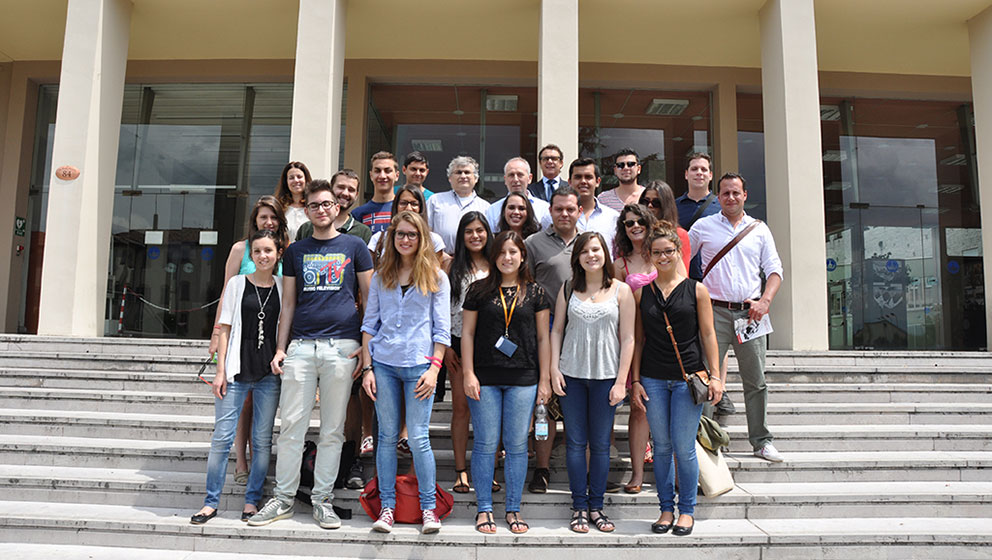Summer program strengthens ties with Colombian University

Although winter is around the corner in Europe, summer programs are a hot topic amongst Academics from Università Cattolica’s Piacenza campus and Colombian University, Universidad de La Sabana. During the summer, Head of Area Culinary Arts at La Sabana, Professor Felipe González Lacouture, accompanied twelve students to Università Cattolica’s Piacenza campus for the UCSC International summer program in Agribusiness and Food Sciences. Cattolica International News caught up with Professor Felipe González Lacouture to talk about his experience from a Professor’s perspective, and to get an insight into further collaborations between the two universities.
Primarily, what was the purpose of your visit to Università Cattolica, Piacenza campus?
The main purpose of my visit was to attend the Summer Course The heart of Italy: food tradition and production and to explore the student environment at the Piacenza campus. One of the goals for this visit was also to live the Piacenza living experience in order to have enough information for my students in Colombia about the City, the campus and the summer program.
Are you expecting the number of students attending the program to grow next summer?
There were twelve La Sabana students from the Gastronomy program attending the 2014 summer course. From what I see the number is going to grow. Every year since the beginning of this relationship between the two institutions more and more students are interested in having an international experience. Italy is one of the main targets because of its famous food and wine production, the approach to DOC, Denominazione di origine controllata (Controlled designation of origin) and the relationship between the artisan and industrial methods that are an example for the world´s agricultural development and market.
What was your overall impression of the Agribusiness and Food Sciences program?
Well my impression is that the program is very well developed; the structure is complete covering areas of food technology, food science and agriculture with a nice approach to food and agricultural management.
There are discussions about introducing international Professors into the summer course. What do you think would be the added value of having an international professor, like yourself, teach Agribusiness and Food Science program at the Piacenza campus?
Well, responding to the needs of this globalized and busy world we are living in now. I confirm that the academic development of these kind of courses have to have an international approach where the students have the opportunity to know first handed the issues of production development in different parts of the world. Besides that, as a teacher I would love to be part of this selected network of professors to share points of view, do research, and so forth.
How would such a move strengthen the relationship between Università Cattolica and Universidad de La Sabana?
Definitely that would open a channel between the two institutions to work together to develop new programs, the research and the production of academic development.
Based on your experience this summer in Piacenza, are there a lot of differences with teaching methods?
Well, there are different methods to deliver the information, I strongly believe that having a diverse approach to a subject during the developing of a course would ensure the quality and quantity of information processed by the students.
The idea of having an international professor also changes the classroom teaching & learning perspectives and ideas. Explain how this is enriching for all?
Well I believe that the transfer of information during the class strongly depends on the cultural background of the teacher, his beliefs and his experience, so for the people involved in the development of the course it is by far better a multicultural and interdisciplinary environment.
Did you get a chance to explore the city of Piacenza. What do you think of the location for students studying Agribusiness and Food Science courses?
Yes, for me the city of Piacenza has a magical atmosphere and is a great environment to be in. It has this mix of a historical city, agricultural development, student environment and great food production all around, What else would you need to study?
What is your perception of the integration between Colombian students with Italian students? Based on your observations and based on student recounts, both on campus and off campus.
My Colombian students had a very good time over there. Communication between the people attending the classes was fluent in both the academic and friendly – relaxed way. Among all the academic activities they also have the chance to interact and mix up, they enjoyed the city by the hand of the Italians and other international students. From what I know, they still keep in touch!

